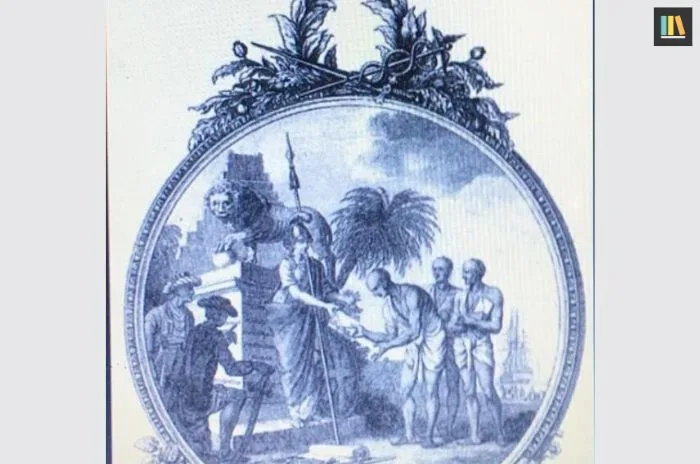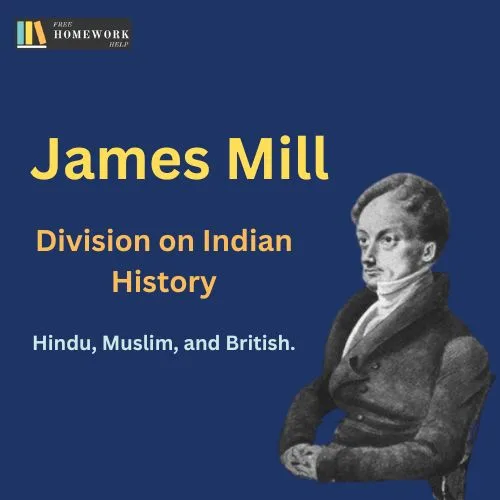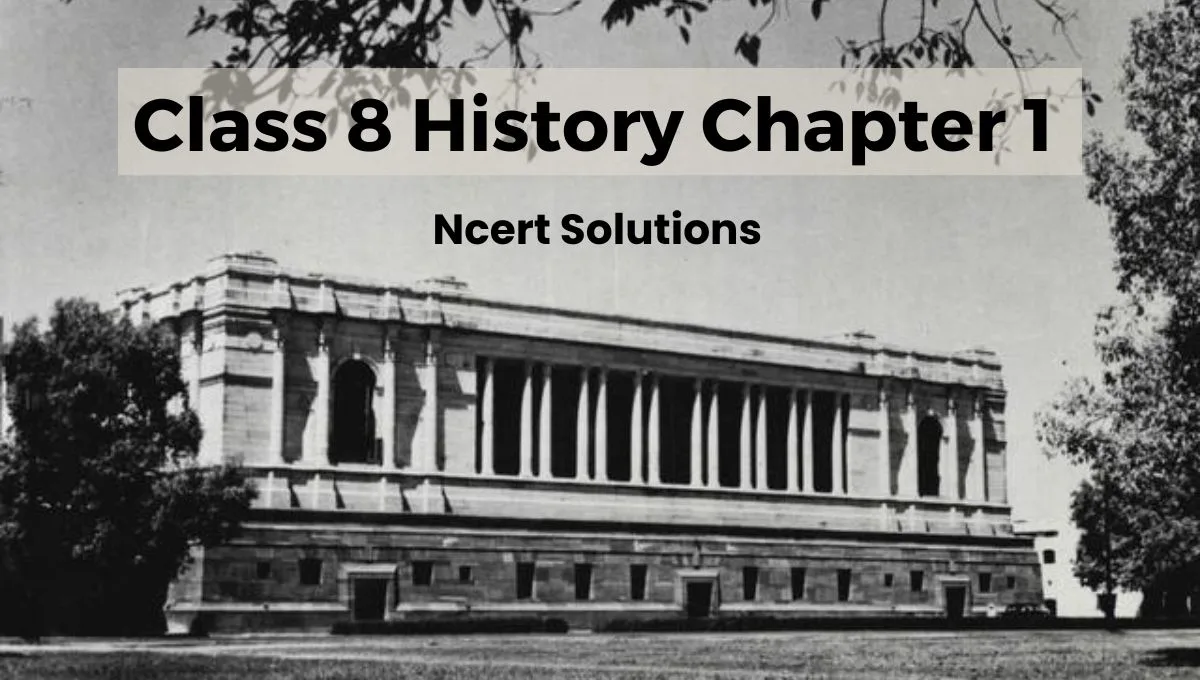NCERT Solutions for Class 8 History Chapter 1 – How, When, and Where provides easy and accurate solutions to the given exercises, which will be useful for school exams and help prepare school students. All the questions in the textbook have been answered carefully. Students can learn these solutions and get good marks in the exams.
Concept Map

Keywords
1. Communal: Relating to a conflict between different communities, especially religious communities.
2. Colonial: Involving a period of political control by a more powerful country like the British in India.
3. Archive: The place where historical records are kept.
4. Contemporary: Belonging to the same time.
5. Vernacular: Language spoken in a particular area.
NCERT Solutions for Class 8 History Chapter 1
Let’s recall
1. State whether true or false:
(a) James Mill divided Indian history into three periods – Hindu, Muslim, and Christian.
(b) Official documents help us understand what the country’s people think.
(c) The British thought surveys were important for effective administration.
Answer. (a) False
(b) False
(c) True
Let’s discuss
2. What is the problem with the periodization of Indian history that James Mill offers?
Answer. James Mill divided Indian History into three periods – Hindu, Muslim, and British. He thought that it was essential to introduce European manners, arts, institutions, and laws in India. but it is not considered acceptable for various reasons:
i) This division was based on religion & it is difficult to show any period of history as ‘Hindu’ or ‘Muslim’.
ii) It overlooked and underestimated the great cultural diversity of India.
iii) This suited the British colonial interests in India.

3. Why did the British preserve official documents?
Answer. The British preserved documents because
- They used the preserved documents to get information on any decision.
- The preserved documents showed the progress of the country in the past.
- They could study previously prepared notes and reports.
- Documents helped us understand the social, economic, and history of the past.
4. How will the information historians get from old newspapers be different from that found in police reports?
Answer. The information historians get from old newspapers will be different from that found in police reports because the views and opinions of reporters usually give the information from old newspapers, news editors, etc but police reports are true and realistic.
Let’s do
5. Can you think of examples of surveys in your world today? Think about how toy companies get information about what young people enjoy playing with or how the government finds out about the number of young people in school. What can a historian derive from such surveys?
Answer. Yes, there are many examples of surveys in the world today.
The administrative, botanical, and market surveys are done by the government which helps us to know about the needs and wants of the people. The government finds out about the number of young people in school through the records and reports of school authorities.
A Historian can get information about preferences, lifestyle, political, social, economic life, etc.
Class 8 History Chapter 1 Questions and Answers
Very Short Questions Answers
- Who was James Mill?
Answer: He was a Scottish economist and political philosopher. - What was Mill’s opinion about Asian societies?
Answer. Mill’s opinion about Asian societies was that these societies were at a lower level of civilization than Europe. - Why do many historians refer to the modern period as colonial?
Answer. Many historians refer to the modern period as colonial because, during this period, people did not have equality or freedom, which symbolises modernity. - What do you mean by the term “census”?
Answer. Census is the process in which the records of the number of people, and information on castes, religions, and occupations are gathered. - What was an important aspect of the histories written by the British historians in India?
Answer. The rule of each Governor-General was an important aspect of the histories written by British historians in India.
Short Questions Answers

- How did James Mill periodise Indian History?
Answer: James Mill periodized Indian History into three periods – Hindu, Muslim, and British. - What is the accepted periodization of Indian History now?
Answer: Now, Indian History is divided into three periods-
The ancient Period stretches from the earliest to the 7th century CE.
Medieval period- It falls between the early 8th and early 18th century CE.
The Modern Period- It falls between the mid-18th and the mid-20th century CE. - List any three sources of information for the modern period of Indian History.
Answer: The three sources of information for the modern period of Indian History-
i) Official records
ii) Surveys
iii) records of European Companies. - Why did the British maintain detailed official records?
Answer: The British maintained detailed official records because these records provided valuable information about matters related to all levels of administration, from the districts to the central government. - List the names of some newspapers from this period.
Answer: Some newspapers from this period are- Rast Goftar, Patriot, Amrit Bazar Patrika, Indian Mirror, and Kesari.
- Why were dates considered important in history for the longest time?
Answer: Dates were considered important in history because
they help us to organize events, establish timelines, and study historical patterns and developments. - What did the British do to preserve important official documents?
Answer. The British set up record rooms & special institutions such as archives and museums to preserve records.
The village tahsildar’s office, the collectorate, the commissioner’s office, the provincial secretariats, the lawcourts – all had their record room. - How do the official records help historians to reconstruct the history of the modern period?
Answer:
i) These official records help historians create a chronological framework and order events accurately.
ii) These provide official documentation of events, policies, decisions, and actions.
iii) These help political decision-making processes, policy formation, legislative actions, and governance structures.
iv) Historians can gather a comprehensive understanding of the past, and throw light on historical processes, social changes, and the problems of the modern era.
FAQ
1. What is the first chapter of history in class 8?
Ncert Solutions For Class 8 History Chapter 1 How, When and Where
2. What are the important dates of history class 8 chapter 1?
I) 1773-Warren Hastings became the first Governor General of India.
ii) 1782- James Rennel produced the first map.
iii) 1817- James Mill published a massive three-volume work on British India.
3. What is colonialism class 8?
Colonialism is a policy of control by one nation over the people living in different countries.
Conclusion
The Ncert Solutions for Class 8 History Chapter 1 is designed to assist in understanding and learning about the topic. By studying the provided materials, learners can gain knowledge about the chapter. You can access them by visiting the website. If you have any other queries about Ncert Solutions for the Class 8 History Chapter, When and Where, feel free to reach us so that we can get to you as soon as possible.
